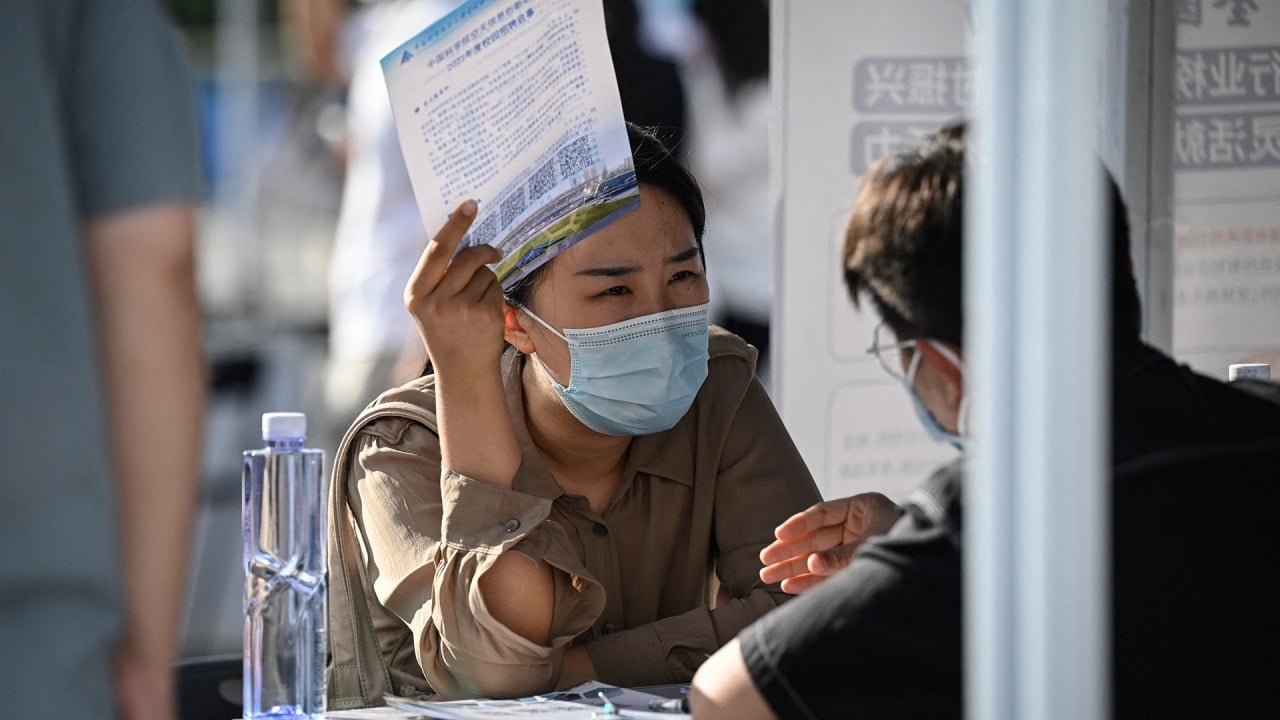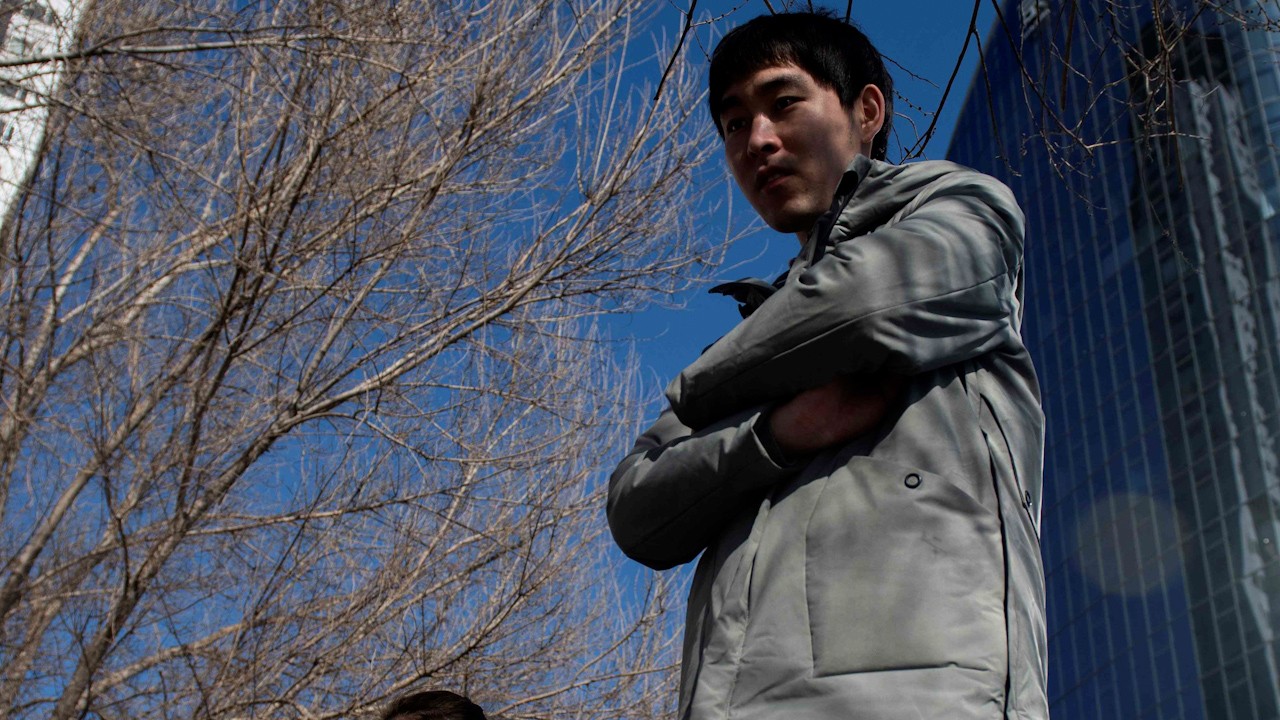
China’s students once attended graduate school in droves. Today, they have other plans
- With the value of postgraduate education diminished by an overcrowded job market, more students are deciding not to pursue further studies
- Civil service, with its relative security and stability, seen as alternative for those who balk at the prospect of master’s or doctorate degrees
Mindy Li doesn’t see much use in more education.
A second-year student at a low-ranking university in eastern China’s Shandong province, Li has spurned the notion of extra years of study at a graduate school after earning her bachelor’s degree, despite her tutor’s repeated prodding.
Majoring in Chinese literature – a subject with scarce corporate job opportunities in normal times, much less in the middle of a sluggish economic recovery – Li has begun to think her only way out is through the civil service.
“There are so many master’s degree holders today that such a degree is far less valuable than in the past,” she said.
“What’s the point of spending three more years at school when I’ll still have to take the civil service exam in the end?”
Instead of furthering their academic studies, a pursuit that once meant better employment options, many undergraduate students like Li are turning their backs on China’s cutthroat postgraduate admission exam as higher degrees become less cost-effective.
Most now share the same goal – a government job that can ensure stability and security in uncertain times.
After eight consecutive years of increase, the number of applicants for this year’s annual postgraduate exam dropped by 360,000 according to figures from the Ministry of Education (MOE).
Though the total still remains high at 4.38 million, this represents a 7.6 per cent decrease from last year.
These positions are still widely regarded as “iron rice bowls” – public sector jobs with near-guaranteed tenure and benefits – despite relatively low pay, according to the National Civil Service Administration.
Chinese provinces offer state-owned firms incentives to hire more graduates
As foreign companies retreat and private businesses struggle amid a bumpy economic recovery, securing a satisfactory job in the private sector has also become a challenge for fresh graduates.
The National Statistics Bureau had reported a 21.3 per cent unemployment rate for people aged between 16 and 24 in June, the highest level since it began publishing the data in 2018.
Chen Zhiwen, an education researcher and member of the Chinese Society of Educational Development Strategy, said the shrinking army of graduate school applicants shows Chinese youths are getting more rational as they realise postgraduate study can no longer guarantee them a better job.
I don’t need to worry about being fired … when working in the government
“Chinese universities are mostly affordable for undergraduate students, with tuitions even cheaper than kindergartens. But it’s a different case when it comes to postgraduate programmes, especially professional degrees which require quite a large sum,” he noted.
“People are starting to return to rationality when they start thinking about the cost-effectiveness.”
China’s higher education enrolment has ballooned since the late 1990s. While the number of college students nearly tripled between 2000 and 2022, matriculations at graduate schools grew tenfold over the same period, standing at 1.24 million last year according to the MOE.
Rose Ni, who finished her undergraduate studies in 2021 and now works at a government agency in Ganzhou, a city in the eastern province of Jiangxi, said winning a position in a city-level agency already puts her above many of her peers with more impressive backgrounds.
“As far as I know, there are plenty of master’s graduates who have accepted positions at subdistrict or township government institutions,” said Ni, who majored in law and now handles basic legal affairs.
She has an ambition to become a lawyer, which requires further study, but that means she would have to give up her highly sought after posting.
She has applied to take the postgraduate exam later this month, but is still struggling over whether to attend.
“I don’t need to worry about being fired or have to fight for performance when working in the government, while my classmates who work in law firms have much greater work pressures and travel a lot,” she said.
“Most of them,” she added, “are actually preparing for the civil servants’ exam.”
The present pursuit of stability in the public sector marks a drastic change from the frenzy to work in private businesses in the 1990s as the Chinese economy quickly expanded, said Chen, who completed his education in that earlier era.
I once applied for a position that had several hundred competitors, which was basically an impossible game to win
“People flocked to work in private companies and foreign firms back then, and graduates from certain universities would need to pay a fine if they chose to give up job opportunities at government bodies or state-owned enterprises,” he said.
“Three years of pandemic helped people realise the importance of stability, epitomised by the fervour for civil service and the popularity of military schools and police academies.”
Li Feng, a 26-year-old teacher in Shandong province, said he has sat the public service exam for five years since 2018 – and just finished this year’s last month.
How much employment pressure is China facing?
“I once applied for a position that had several hundred competitors, which was basically an impossible game to win,” he said.
“This year, I picked a position with 11 applicants.”
But even with those odds, Li is not so optimistic. “It’s getting harder to pass the exam as the economic situation changes,” he added.
“In 2018, test takers could be recruited as long as they passed the national cut-off point.”
That occurred at a time when economic growth was still strong, and many people chose to work in the corporate sector, he recalled.
“A salesperson in a property developer may sell several apartments within one month, earning a monthly income of 30,000 or even 50,000 yuan,” he said, “but now this salary is almost impossible for a private employee, isn’t it?”
The addition of those already employed like Li Feng to the candidate pool have made competition even more intense.
If private enterprises fail to grow … students’ employment will become increasingly difficult in the future
Of that half – over 5 million – 1 million were absorbed into the public sector via the civil service, while roughly 2 million either went to study overseas or at a graduate school at home.
“We can then imagine how few jobs the private sector has provided,” he said, attributing this to the poor performance of private companies and exodus of foreign firms.
“If private enterprises fail to grow and we stop opening up to the outside world, then students’ employment will become increasingly difficult in the future,” he warned.
“Without development of the private sector, how can civil servants be paid when everyone swarms to work in the government and live on public funding?”
Continuing academic study has proven to be one way to ease the youth unemployment burden, and the proportion of students entering graduate schools remains a top criterion in assessing university quality.
Despite a moderate dip in the number of applicants for postgraduate admission, Xiong noted, it is still at a fairly high level.
“There’s also diploma discrimination, a reminder that we urgently need to transform from a diploma-oriented society to a skill-based one,” he added.
Mindy Li, the Shandong student, said for many of her schoolmates, taking the postgraduate admission test is merely a tactic to delay the stress of job hunting.
“I’m not good at academic research,” she said, “so I’d rather face reality now.”
Additional reporting by Mia Nulimaimaiti




